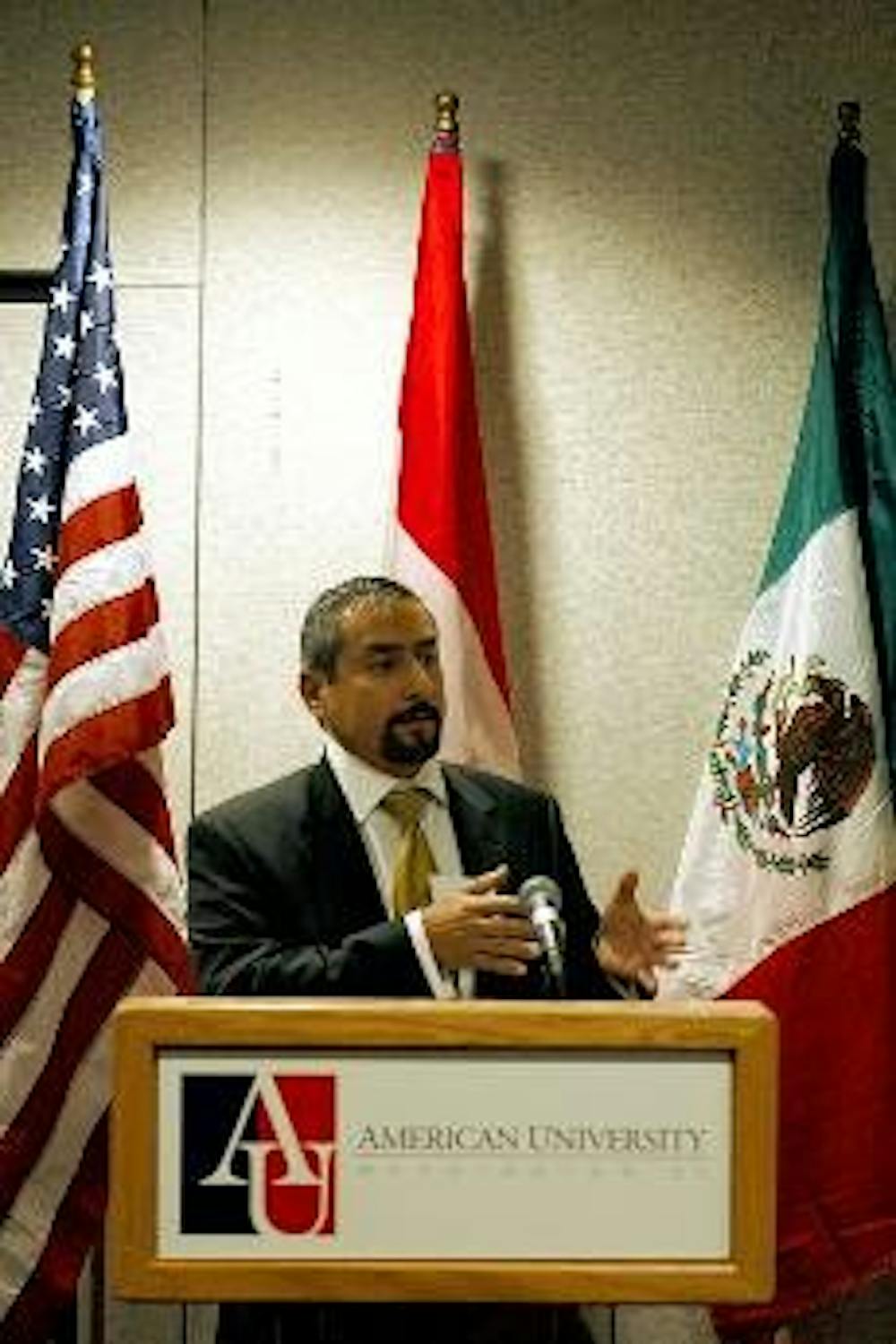The importance of border communities and the challenges of border management was the research topic presented by AU professor and Diplomat-in-Residence Daniel Hernández.
Hernández, a senior fellow for the Center for North American Studies, led by fellow professor Robert Pastor, addressed an audience that included students, faculty and influential political and economic leaders Wednesday evening over dinner.
According to Hernández, land border management, which is different from border patrol, maintenance and administration, is about "asserting territorial sovereignty" by controling what leaves the country, when it leaves and for what purpose. Hernández, however, emphasized the importance for Canada, Mexico and the United States to establish "trilateral relations" and to take into consideration the nature of borderland communities.
Important in the discussion of North American borders is the distinction between the borders the U.S. shares with Mexico and Canada, Hernández said. The northern border, shared with Canada, is characterized by a sense of trust, while the southern border, shared with Mexico, is filled with tension, conflict and violence, Hernández said.
Borderland communities, Hernández said, are indicative of what North America could become if it embraced the porosity of its borders because these communities have an "international boundary that becomes very much part of their identity" and as such, there is no conflict between national identity and an international border.
Hernández said that increased enforcement and surveillance of the border turn border communities inward to their traditional national identities, rather than fostering the unique international exchange their border location creates.
A border management policy integrating wide participation between governments, agencies, border communities and other influential players is the solution Hernández said he favors for future North American border control.
The divergent concepts of "Fortress America" and "Fortress North America" were also topics of conversation Hernández explored.
According to Hernández. "Fortress America" refers to the United States investing in and enacting enforcement and surveillance to protect its own national borders while "Fortress North America" refers to the movement for the U.S. to work with Canada and Mexico to surround the region in a single security perimeter.
Hernández said the U.S. is seemingly trying to institute both, which has created political challenges for all three countries, especially because at times, the policies of "Fortress America" pose as obstacles to the construction of a "Fortress North America."
The dinner also recognized the support of CEMEX, a global corporation that started as a regional company in Mexico, and the Ministry of Foreign Relations of Mexico for the Center for North American Studies.
Pastor emphasized the importance of continued dialogue on North American affairs.
"The competitive edge North America had over the last decade has now eroded," Pastor said, saying this erosion is the result of Sept. 11, regional trade agreements and the fact that countries "haven't stepped up to the plate."
Pastor said that "what is needed is for other universities ... to begin thinking seriously about all of North America"





